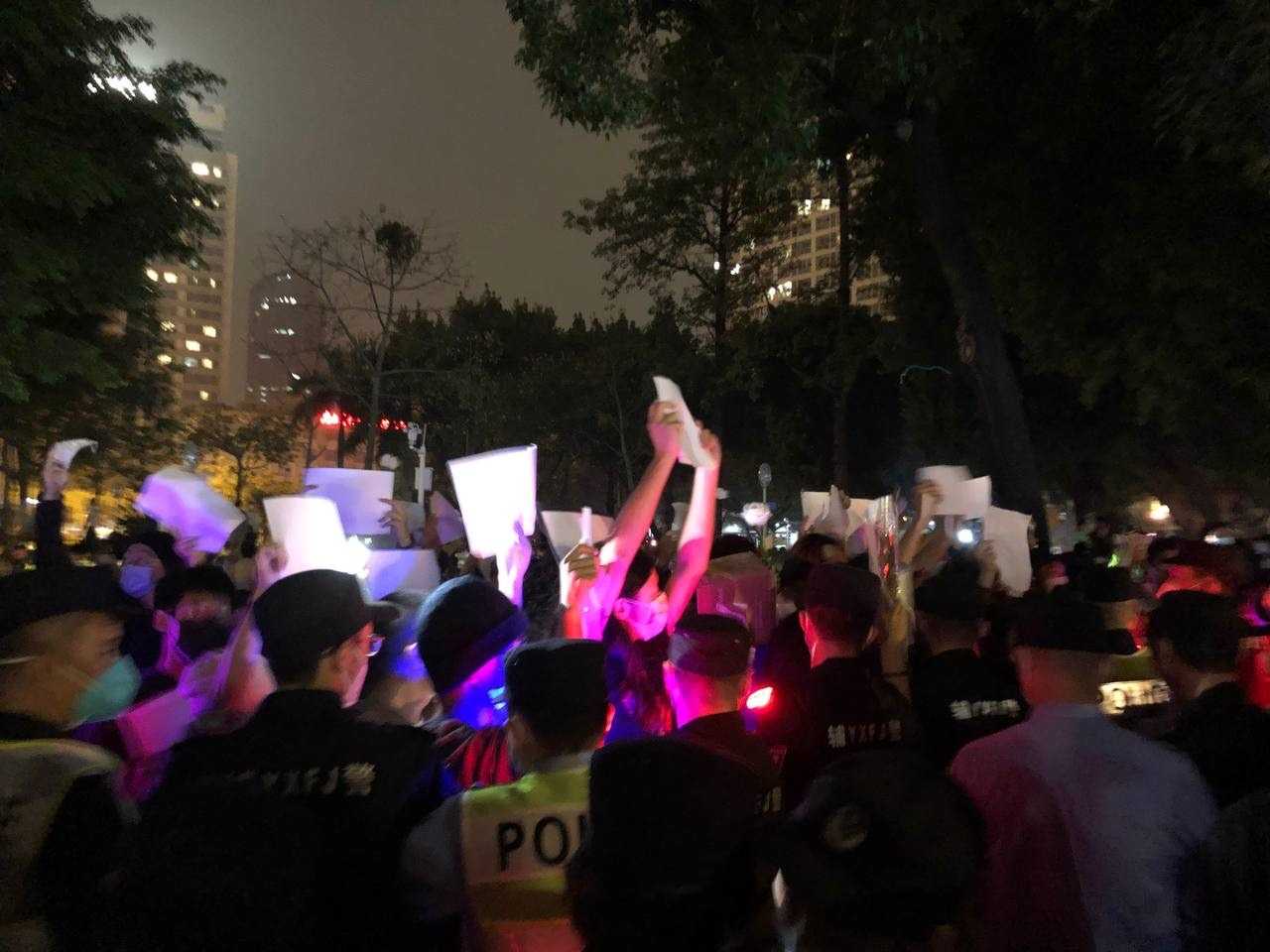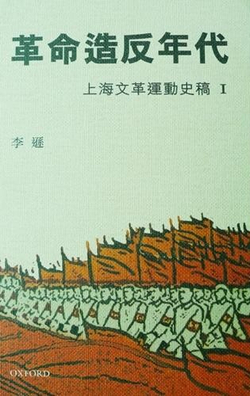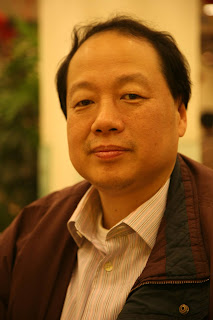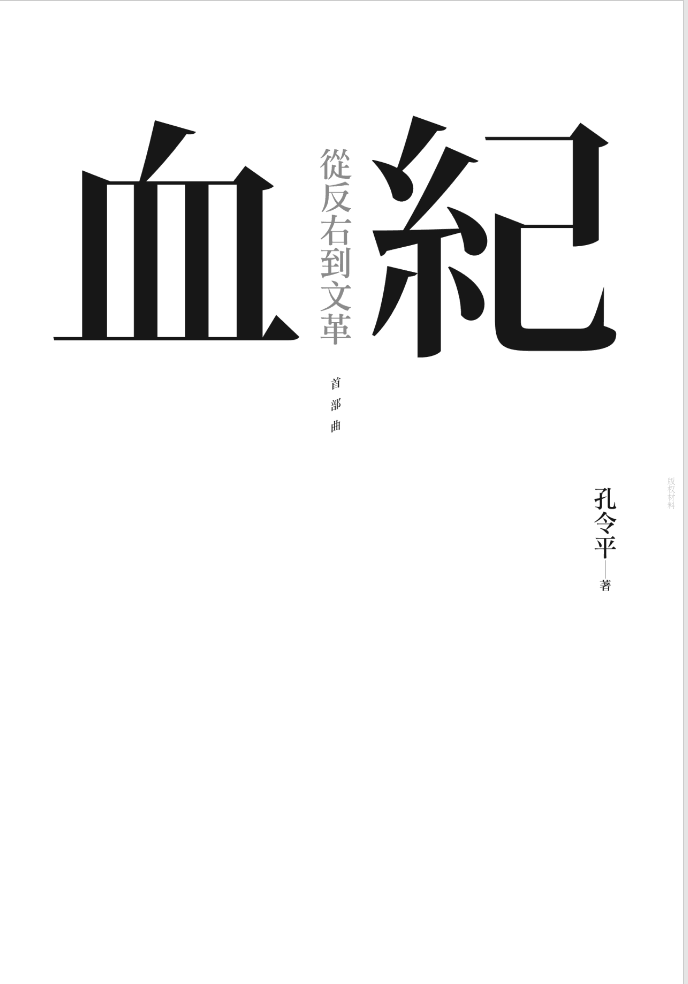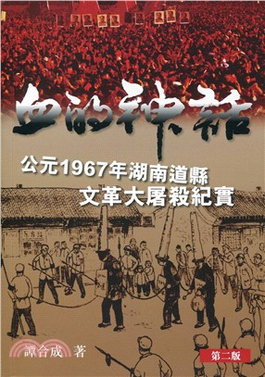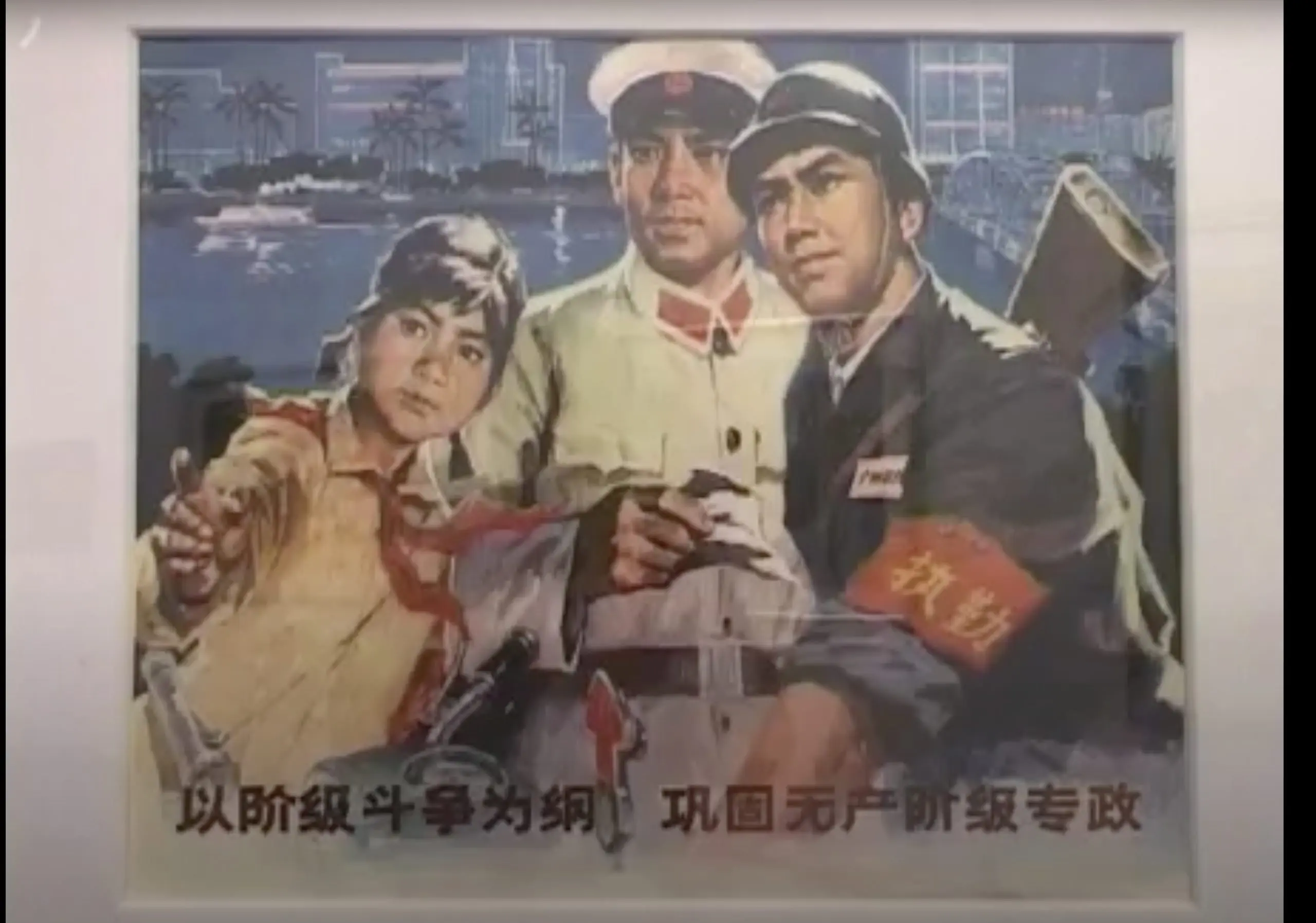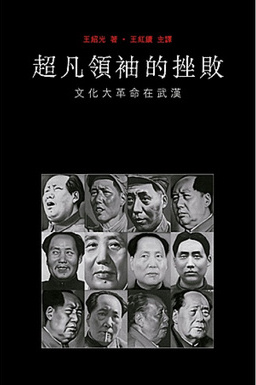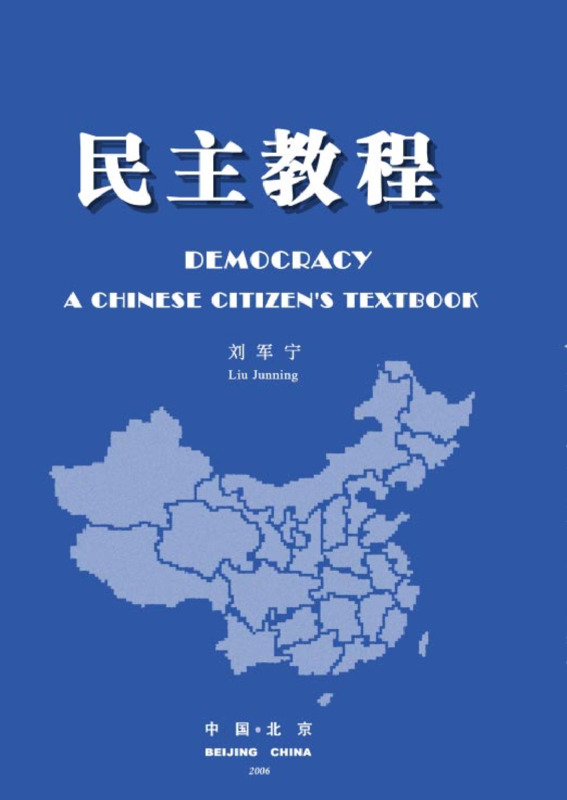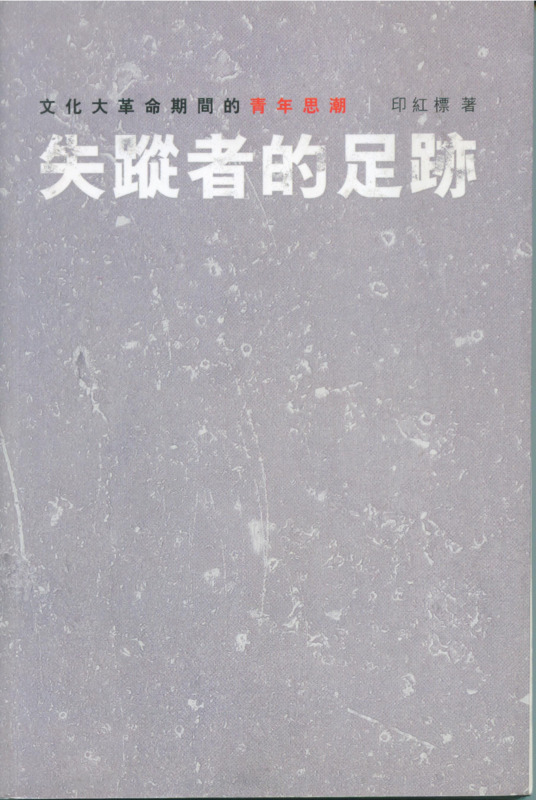Explore the collection
Showing 152 items in the collection
152 items
Book
1966: Memories of Our Generation
This book is a collection of nineteen feature articles by well-known contemporary scholars, researchers, and writers. They recapitulate their own experiences during the Cultural Revolution in a literary style.
When the Cultural Revolution broke out, they were all young people in their twenties. These reminiscence articles are the result of a rare collective reflection after the end of the Cultural Revolution. The authors described their own experiences during the Cultural Revolution in the articles, providing a personal perspective on history.
The chief editor of this book is the philosopher and activist Xu Youyu, a former researcher at the Institute of Philosophy, Chinese Academy of Social Sciences. Xu signed and made suggestions on Charter 08, and also is a co-founder of the New Citizens Movement. Since 2015 he has resided in New York City, where he has been a visiting scholar at the New School for Social Research.
This book was published by China Federation of Literary and Art Circles Publishing Corporation in 1998.
Film and Video
A Citizen Survey
In August 2008, after the 100-day anniversary of the Sichuan earthquake, rescue teams began to withdraw and the media stopped reporting on the casualties of school employees, teachers, and students. Chengdu environmental worker Tan Zuoren and local volunteers, however, were still searching for the cause of the collapse of school buildings within the ruins. As winter arrived, Tan Zuoren and his colleague Xie Yihui trekked through more than 80 towns and villages in 10 counties and cities, covering a total of 3,000 kilometers. Finally, before the May 12 anniversary, they issued a report of their investigation, which was the first independent inquiry report on the Sichuan earthquake’s impact on schools. At the same time, Beijing artist Ai Weiwei furthered civilian investigation and new volunteers arrived in Sichuan to search for the names of students who died. This documentary is an incomplete record of a civilian investigation and a piece of testimony submitted to the court charging Tan Zuoren with “suspected subversion of the state.”
This film is in Chinese with Chinese subtitles.
Book
Active Life
This is a collection of essays by Cui Weiping, a professor at the Beijing Film Academy. The title, inspired by Hannah Arendt, covers a wide range of fields from poetry and movies to politics and ethics, and tells the stories of fascinating people, the construction of their inner world and external lives. These people include Hai Zi, Wang Xiaobo, Arendt, Woolf, Beauvoir, Tarkovsky, Kremer, Herbert, Havel, and many others. Behind these seemingly unrelated names, there are hints of these two interdependent spiritual dimensions: on the one hand, the construction of the external world in which we live; on the other hand, the construction of our own inner world, which cannot be neglected. This book, published by Renmin University of China Press in 2003, has had a significant impact on the development of civil society in China.
Book
Age of Revolutionary Revolt: Historical Manuscripts of the Cultural Revolution Movement in Shanghai, The
Shanghai is where the Cultural Revolution was launched, and the Shanghai Cultural Revolution is an important part of China's decade-long Cultural Revolution. This book is an important work about the decade-long Cultural Revolution in Shanghai. It has been commented that "Li Xun's book is the most detailed account of the Shanghai Cultural Revolution to date. Although other perspectives are possible, as far as political history is concerned, the basic framework is complete; and as far as the study and evaluation of the Cultural Revolution is concerned, the core of understanding the movement is almost lost without the Shanghai Cultural Revolution." This book was published by Oxford Press in 2015.
Here is a link to purchase the book from the publisher:
https://www.oupchina.com.hk/zh/general-interest/humanities/archives/2014/24_shanghai-cult-revolution
Book
Anthology of Essays by Zhang Zuhua, An
Zhang Zuhua is an independent scholar in China. In his early years, he served as a member of the Standing Committee of the Central Committee of the Communist Youth League, Secretary of the Youth League Committee of the Central State Organs. Later, he worked at a private research institute, mainly engaged in political modernization, the theory and practice of constitutional democracy, and China's political reform. He was a key participant in China's Charter 08 in 2008. This book is a collection of his political essays.
Book
At the Crossroads of History
This book is Gao Hua's next masterpiece after *How the Red Sun Rose*. It entails a selection of papers published by the author between 1988 and 2004, covering the fields of Republican history, Communist Party history, and contemporary Chinese history. It captures the historical interaction between the present and the past. Gao reflects deeply on the far-reaching Chinese Communist Revolution. With a rigorous and empirical research methodology, he sketches a complex and colorful picture of history, presenting the multiple facets of twentieth-century China's history.
Book
Blood Chronicle: From the Anti-Rightist Movement to the Cultural Revolution
The author of this book, Kong Lingping, who lives in Chongqing, was labeled as a rightist in his youth. He has lived through all the political movements of the Chinese Communist Party (CCP). This book is based on the author's own experience, from birth to 2009.
Book
Blood Letters: The Untold Story of Lin Zhao, A Martyr in Mao's China
This book is the brainchild of Prof. Lian Xi of Duke University, U.S.A. In March 2018, it was published in English by Basic Books in the U.S.A. In 2021, it was published in Chinese by Taiwan Business Press. Based on a large amount of historical materials as well as first-hand interviews, this book reconstructs Lin Zhao's life. It depicts the political development before and after the birth of New China, and presents the resilient will and beliefs of intellectuals in this era.
To purchase this book, please visit [the publisher](https://www.hachettebookgroup.com/titles/lian-xi/blood-letters/9781541644229/?lens=basic-books), or a bookseller.
Book
Blood Myths
In 1984, CCP’s reformist leader Hu Yaobang sent more than 1,300 officials to Dao County in Hunan Province to investigate mass killings that occurred in 1967 during the Cultural Revolution. Tan joined the team for part of its stay in Dao County. As a writer for a state publication, Tan gained a number of documents unearthed during the investigation and conducted interviews, based on which he wrote an article of 100,000 characters. His editors, however, said it could not be published because the political climate was changing with the start of the "bourgeois liberalization" campaign, which eventually led to Hu's fall. Tan decided to continue his investigation and traveled to Dao County many times to do follow-up interviews. Tan collected millions of words of information, including nearly 400 case studies, and interviewed almost all the key figures who agreed to be interviewed.
In 2010, Tan published Blood Myths: the 1967 Mass Killings in Dao County, Hunan Province during the Cultural Revolution through Hong Kong-based Tianxingjian Publishing House. This nine-volume work consists of 83 chapters and more than 500,000 characters. According to Tan's investigation, in the 66 days from August 13 to October 17, 1967, more than 9,000 villagers, including women and children, were killed or forced to commit suicide because they were wrongly accused of engaging in counter-revolutionary activities. More than 14,000 people were directly implicated in the killings, including 426 state cadres, 2,767 village officials, and 3,880 Communist Party members. Unlike works on the history of the Cultural Revolution previously published in China that focused on the persecution of intellectuals, this book presents the systematic violence suffered by villagers. The book contains not only the words and stories of a large number of those killed, but also those of the killers and others involved, enabling readers to develop an all-encompassing, multi-faceted understanding of this tragic event. According to Yang Jisheng (see separate entry), most of the information about the mass killings currently circulating at home and abroad originated from Tan's investigations and interviews.
The book was reprinted in 2011 and a revised edition was published in 2016, expanding the book to 700,000 words. In 2017, Oxford University Press published <i><a href="https://global.oup.com/academic/product/the-killing-wind-9780190622527?cc=us&lang=en&">The Killing Wind: A Chinese County's Descent into Madness during the Cultural Revolution</a></i>, an edited and condensed (with Tan's permission) version of the book by Stacy Mosher and Guo Jian.
Book
Captive Spirits: Prisoners of the Cultural Revolution
This book is the memoir of Chinese economist's Yang Xiaokai. It tells the stories of more than two dozen characters he met while imprisoned in Changsha during the Cultural Revolution. Published in 1994, it was reprinted in 1997 and 2016. The English version is titled *Captive Spirits: Prisoners of the Cultural Revolution*, published by Stanford University Press in 1997.
Book
China's "Left Scourge"
The author of this book, Lu Jianhua (pen name Wen Lu), was a former member of the Chinese Academy of Social Sciences who published this book in 1993. He was sentenced to 20 years in prison in 2005 for "allegedly leaking state secrets" in connection with the "espionage case" involving journalist Cheng Xiang.
Film and Video
Cultural Revolution Propaganda Posters
Through a large number of Cultural Revolution paintings, this film shows the official aesthetics at the time of the Cultural Revolution and the bloody violence and authoritarianism behind these paintings. The film features interviews with painters and Red Guards of the era as well as collectors and researchers in China and the UK today.
Book
Defeat of an Extraordinary Leader: The Cultural Revolution in Wuhan, The
This book covers the history of the Cultural Revolution in Wuhan and related analysis. Wang Shaoguang completed his doctoral dissertation of the same name (in English) in 1989, and the Chinese version of his abridged dissertation, *Rationality and Madness: The Masses in the Cultural Revolution,* was published by Oxford University Press in 1993. a Chinese version was published by The Chinese University of Hong Kong Press in 2009. Taking the Cultural Revolution in Wuhan as the main axis, the author interviewed dozens of participants in the Cultural Revolution, utilizing a large amount of original materials published during the Cultural Revolution. Combining all of this with his own personal experience, he profoundly reveals the masses' participation in the Cultural Revolution during winters, forms and laws, the mechanism of advancement and retreat, and its relationship to the general situation of the whole country.
Book
Democracy Curriculum
Written by Chinese liberal intellectual Liu Junning, this book circulated underground in 2006. The book parses the fundamentals of democracy as well as historical experience. It was quickly banned in China.
Film and Video
East Wind State Farm
In 1957, two hundred teachers, students, and cadres from Kunming, Yunnan were among the hundreds of thousands of Chinese people labeled as “Rightists” for criticizing the Chinese Communist Party. They were sent to the East Wind State Farm, located in Mi-le County in Yunnan, for 21 years of “thought reform” in the countryside. These inmates witnessed the policies of the Great Leap Forward first-hand: they took part in deforestation, agricultural, and industrial projects in the countryside, which precipitated the Great Famine. Later, during the Cultural Revolution, their camp was visited by large groups of youths “sent down” from the cities, who worked on the farm with the “Rightists.” In 1978, these “Rightists” were finally rehabilitated and allowed to leave.
This documentary examines the policies and campaigns of the Maoist era through the eyes of those who were persecuted and exiled. Director Hu Jie pieces together this long and complex story through collecting dozens of extensive interviews with inmates as well as staff who served through decades of the camp’s existence. These people’s vivid memories and personal accounts shed light on the harrowing lifestyle of not only the two hundred “Rightists” of East Wind State Farm, but also the scores of dissidents and youths who experienced the Great Leap Forward and the Cultural Revolution.
Film and Video
Enemy of the State
On February 9, 2010, Tan Zuoren was tried in the Chengdu Intermediate People’s Court for the crime of inciting subversion against the state. Ai Xiaoming and her team recorded the three days before and after the verdict, the mindsets of Tan Zuoren’s friends and relatives, and how the lawyers carried out their work.
This film is in Chinese with Chinese subtitles.
Book
First Man against the Cultural Revolution and His Co-Conspirators, The
On August 8, 1966, the Central Committee of the Communist Party of China adopted the "Sixteen Articles" of the Cultural Revolution. Soon after, Liu Wenhui, a young mechanic in Shanghai who had been labeled as a "rightist" in 1957, wrote pamphlets and leaflets clearly opposing the Cultural Revolution, the "Sixteen Articles", and authoritarianism and tyranny. He was arrested on November 26 of that year. Four months later, he was executed for "counter-revolutionary crimes." Liu Wenhui became the first person known to have been publicly shot for opposing the Cultural Revolution. The author of this book, Liu Wenzhong, was Liu Wenhui's co-defendant and survived thirteen years in prison. In this book, Liu Wenzhong describes in detail his brother Liu Wenhui's ideology as well as how he was killed by the tyrannical government.
Book
Footprints of the Missing: Trends of Youth Thought During the Cultural Revolution
During the ten years of the Cultural Revolution, ideological control was extremely harsh. However, a small group of young people at great personal risk still carried out extremely serious study and thinking.
This book is a study of this group of young thinkers. Written by Yin Hongbiao (b. 1951), a professor of history at Peking University, it examines the lives and motivations of some of these contrarian thinkers. Instead of focusing on well known thinkers from the Cultural Revolution, such as Yu Luoke, Professor Yin seeks to rescue "missing persons" from history. These are not mainstream public intellectuals, but grassroots thinkers who challenge the mainstream. In this book, they include people such as Chen Erjin, a young man from the mountainous province of Guizhou, who in 1976 published an essay "On Privilege" that proposed protection of human rights and a western-style separation of powers.
The book also allows us to understand the thinking of young people from the middle of the last century. As the critic Hu Ping noted in a review of this book (https://www.rfa.org/mandarin/pinglun/huping/hp-11302009095820.html):
"The 19th-century Russian thinker Herzen wrote: 'Can future generations understand and evaluate all the horrors and all the tragic aspects of our existence? ... Oh, let future generations linger on before we sleep under the tombstone, let us meditate and pay our respects; we are worthy of their respect!' Reading "Footprints of the Missing" written by Dr. Yin Hongbiao of Peking University reminds me of Herzen's words."
Book
Free Zhang Zhan
Zhang Zhan, born in 1983, is a Chinese lawyer and a dissident of the Communist Party system. In early February 2020, she rushed from Shanghai to Wuhan, which was under lockdown due to the COVID-19 epidemic, to conduct on-the-spot interviews and released a series of video reports on Wuhan's lockdown. More than three months later, she was arrested by Chinese police for "picking quarrels and provoking trouble" and taken to Shanghai for detention.
In December 2020, she was sentenced to four years in prison for picking quarrels and provoking trouble. Zhang Zhan went on hunger strike in the detention center and prison, and there were reports that he was critically ill several times. Her courage and resistance attracted the attention of the international community.
The book *Free Zhang Zhan* was edited and created by Wang Jianhong, the head of the "Zhang Zhan Concern Group" on the Internet. It brings together Zhang Zhan's articles and self-media posts published on the Internet, as well as interviews of Zhang Zhan before she lost her freedom, and interviews, as well as poems and articles from outsiders supporting Zhang Zhan. The book reviews the course of Zhang Zhan's case, Zhang Zhan's struggle in prison and the repercussions it aroused at home and abroad. It was published on May 13, 2024 when Zhang Zhan was released from prison after serving her sentence.
This book preserves and records the history of Wuhan's lockdown in China due to the COVID-19 epidemic. Nowadays, Zhang Zhan's articles and words of support for her have been censored and blocked in China, which makes the book even more precious.

